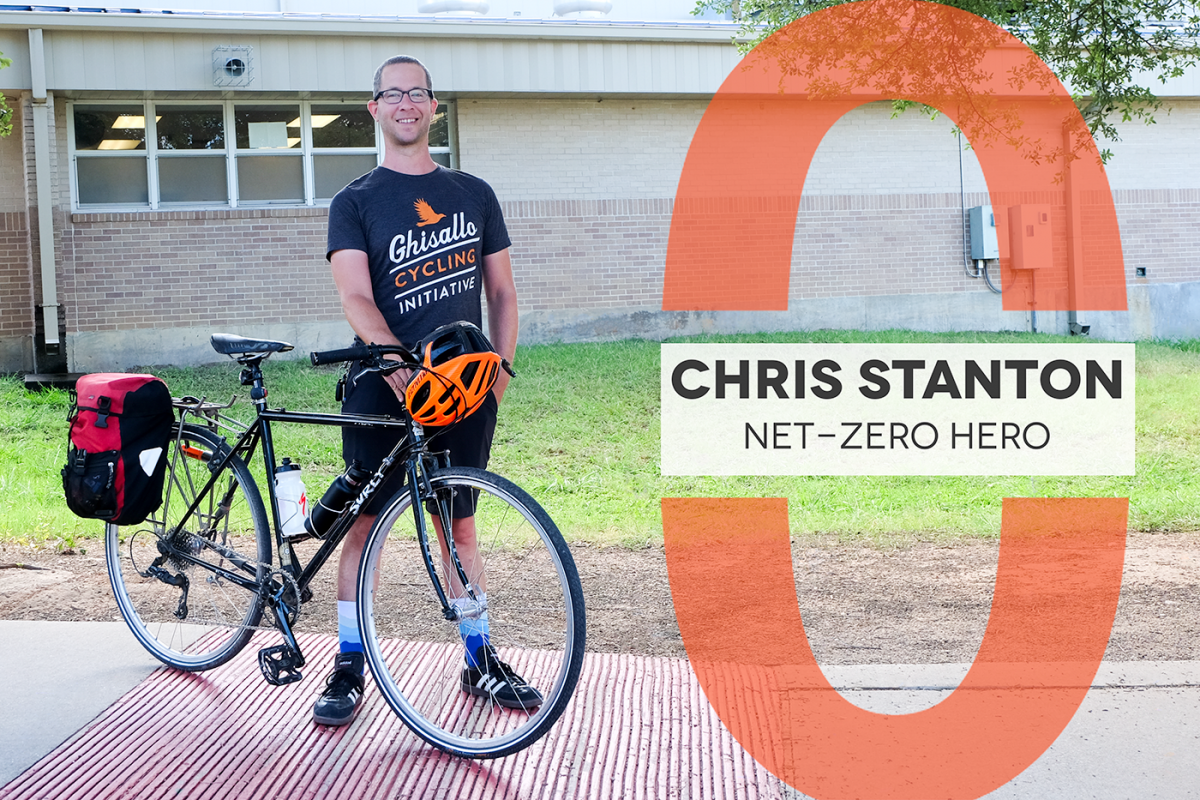Net-Zero Hero: Christopher Stanton
I’m helping to make Austin Net-Zero by developing Austin's youth bicycle riders to give them the skills and confidence they need to ride independently
Meet Christopher Stanton, Founder and Executive Director of the Ghisallo Cycling Initiative. The Ghisallo Cycling Initiative is an Austin-based non-profit organization committed to providing Austin’s youth with supervised access to outdoor physical activity, while also helping them develop into self-sufficient bicycle riders. The goal is to teach kids how to use their bicycles for transportation without depending on adults.
We spoke with Chris about his commitment to Net-Zero, what his toughest challenges have been, and what advice he has for others looking to live Net-Zero.
What inspired you to take action?
Working with Austin’s youth, I quickly discovered that many had only seen Lady Bird Lake from a car, or hadn’t visited downtown, and were missing out on experiencing some of Austin’s most treasured places. I quickly realized that learning to get around by bike safely and sanely doesn’t just build experiences, but also creates endless opportunities and immediately expands one’s horizons. These skills and behaviors positively impact not just the students’ health, but the city’s overall environmental health, which means we all benefit.
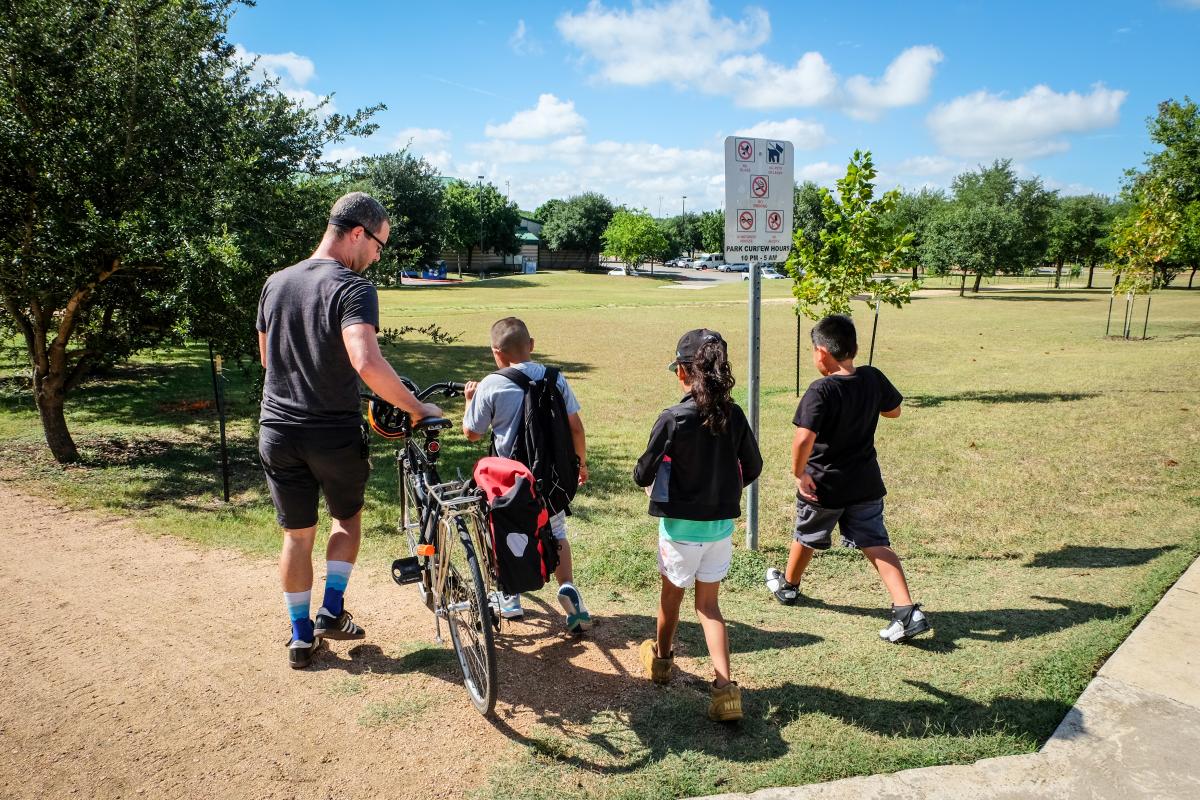 |
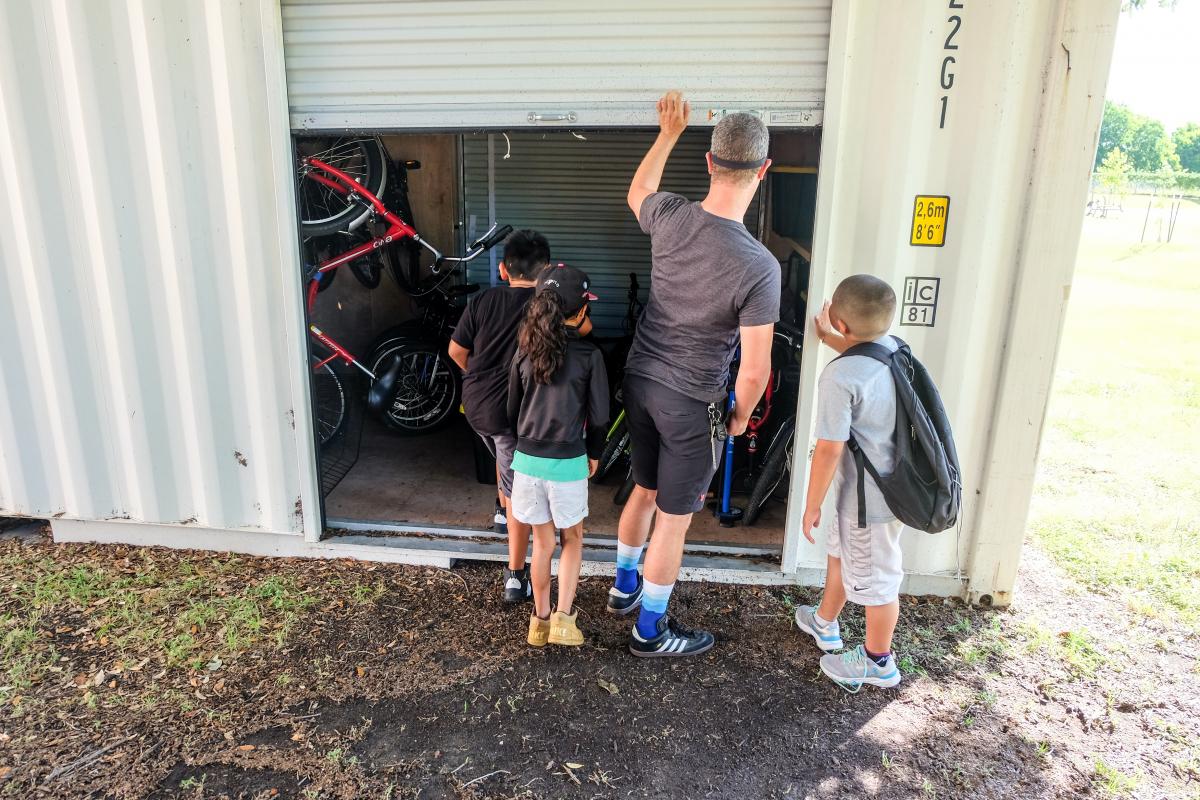 |
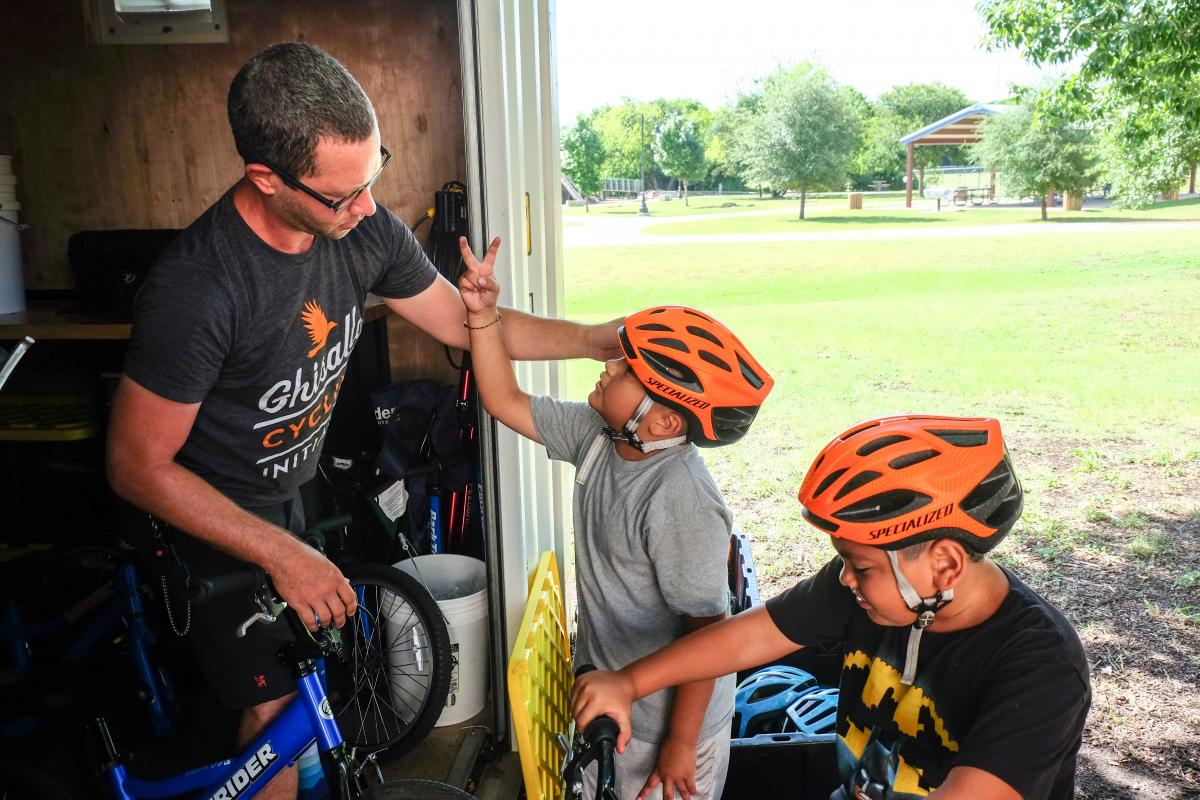 |
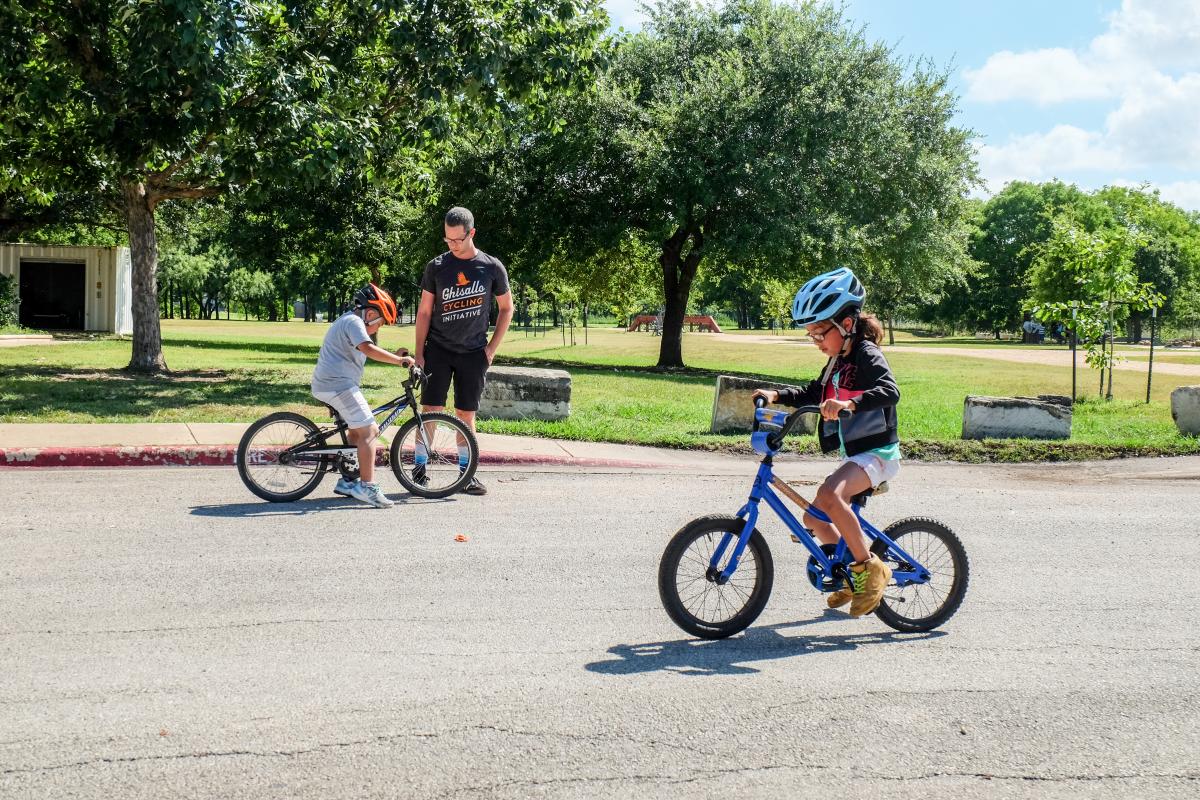 |
Top-left: Chris leads a group of kids out to the bicycle track; Top-right: Getting bicycles out of the bicycle shed; Bottom-right: Chris shows kids how to properly fit helmets; Bottom-right: Chris teaching kids to ride balance bikes.
How did you do it?
To build the Ghisallo Cycling Initiative, I first started small to figure out the model and what would be most engaging and impactful for our participants. What started with just one single after-school Bike Club at Fulmore Middle School grew into two schools the next semester, until we eventually had over 20 weekly after-school programs at schools, Parks and Recreation Centers, and Boys and Girls Clubs. Since 2013, we have had over 13,000 youth participants in our Bike Clubs, and over 7,800 in bicycle skills clinics.
Currently, we have a range of programs focusing on youth, seniors, people experiencing homelessness, and other groups. Instruction and programs include foundational riding and safety skills, using bicycles (and tricycles) as transportation, bicycle maintenance, community bike shops, bicycle lending libraries, earn-a-bike programs, and more. Ghisallo has established an ecosystem of services, the scope of which has consistently grown and morphed to address our community’s needs.
What's been the toughest part?
All the normal parts of starting and running a non-profit organization. For example, funding! Direct programming requires a lot of heavy lifting and can be very challenging, but at the end of the day, seeing the students’ pride at what they have accomplished is rewarding and makes the work feel less tough. The demands on me personally have been eased by the support of dedicated staff and enthusiastic volunteers. And, of course, our funders and donors make everything we do possible.
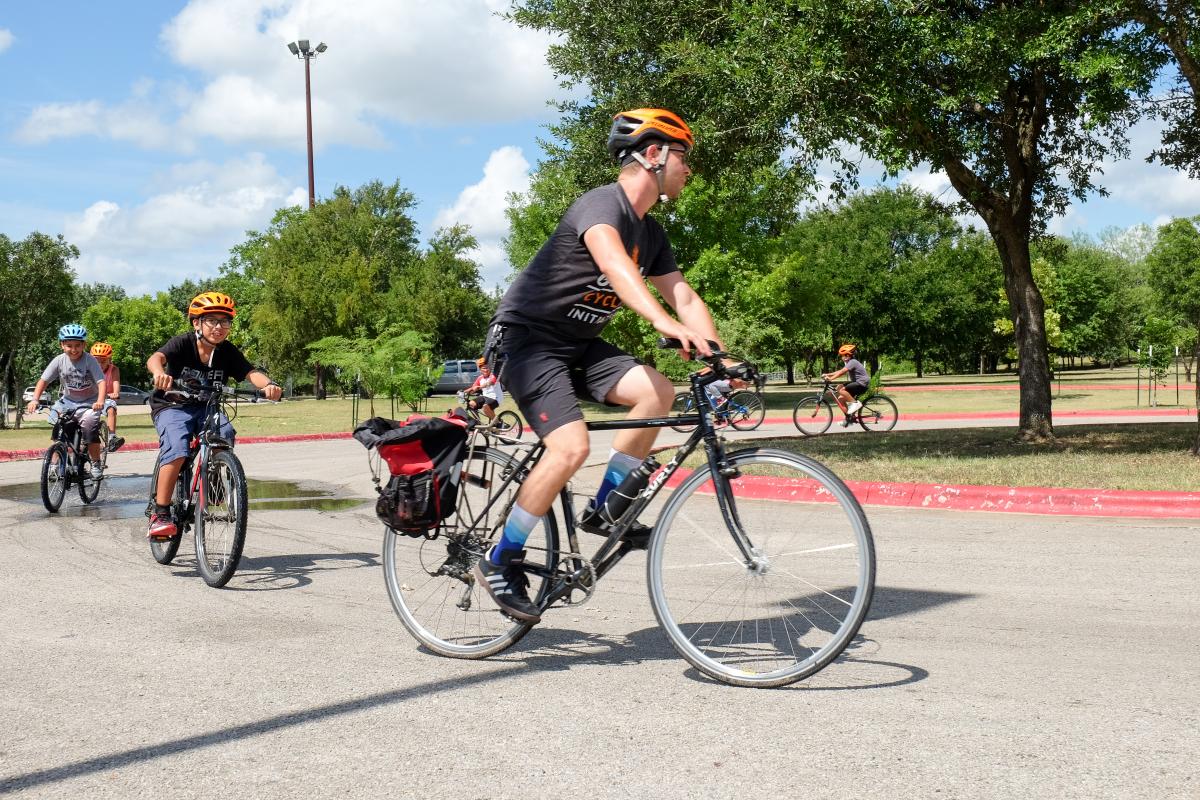
Chris Stanton leads kids around a cycle track.
Have there been any unexpected benefits?
Randomly running into a student I haven’t seen in a couple of years, and discovering that they not only remember being in the program, but that the experience still plays a role in their life 3-5 years later. For example, we recently had a 17-year-old high school student contact us to volunteer with us this summer. After meeting for Volunteer Orientation, we discovered that he had been in our Bike Club in our first year of operation at Fulmore in 2011. 5 years later, not only is he riding a bike for transportation and recreation, but he is now paying it forward and teaching other kids the same skills!
What advice do you have for others?
Always focus on the opportunities you create for others and the outcomes you are trying to achieve. We aren’t a bicycle organization. I run an organization that works with underserved populations to create an immediate quality of life improvement by enabling self-directed mobility and access to new opportunities. For us, the bicycle is just the vehicle for this engagement with the people we serve.
Have confidence that making daily progress in small steps will accumulate into large outcomes over time, even if they feel minuscule in the moment. And always take breaks. Not just to recharge, but so you can step back to gain some distance, check that you are still on course, and make adjustments as needed.
To learn more about Austin's net-zero goal and the actions you can take to support a greener community, view the Austin Climate Equity Plan.
Share your Net-Zero contributions with us on X (formerly Twitter) or Facebook, and use #NetZeroHero. If you know a Net-Zero Hero (or heroes!) who should be recognized for their efforts, send your nomination to climate@austintexas.gov.


